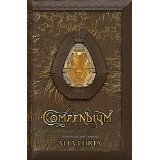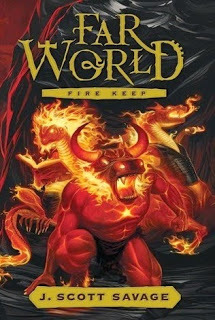Loralee Evans's Blog: Loralee Evans, page 58
June 16, 2015
Boys' State and The American Legion
My son recently finished an excellent experience with Utah Boys' State at Weber State University. He learned a lot about government and responsibility, and gained a greater appreciation of the freedoms that we far too often, take for granted, and of the men and women who sacrifice so much to give us these freedoms.
 I appreciate the mentors who helped him, the people from American Legion who took time from their own schedules to work with these boys for the week they were at WSU.
I appreciate the mentors who helped him, the people from American Legion who took time from their own schedules to work with these boys for the week they were at WSU.
Boys' and Girls' State is a great program that helps produce successful young men and women who will bethe leaders of the future, whether they go into politics, the military, or any other future path. I am glad that my son had the opportunity to participate in the program, and that he was able to be so successful.
 I appreciate the mentors who helped him, the people from American Legion who took time from their own schedules to work with these boys for the week they were at WSU.
I appreciate the mentors who helped him, the people from American Legion who took time from their own schedules to work with these boys for the week they were at WSU.Boys' and Girls' State is a great program that helps produce successful young men and women who will bethe leaders of the future, whether they go into politics, the military, or any other future path. I am glad that my son had the opportunity to participate in the program, and that he was able to be so successful.
Published on June 16, 2015 12:22
June 6, 2015
Tips on Giving and Receiving Critiques
I followed a very interesting conversation today begun by a fellow writer, Braden Bell on his observation that the fine art of critique-giving is something that would benefit writers to develop. Knowing how to give helpful critique as well as knowing how to accept it can both be very beneficial.
I mulled over these thoughts, and read some fantastic comments to Braden's, including a link to Annette Lyon's blog where she talks about tactful ways of giving and taking critiques, here. In addition, Julie Danes blogged some excellent suggestions here, as well.
Giving Critique
My main thought on giving criticism is most importantly of all, that I need to be careful. A piece of writing is the creation of its author, and the author is understandable protective of his or her work. And that is as it should be. Having said that, there are often things an author can do, especially a beginning author, to make a piece of writing stronger, and there are ways for a critique-giver to tactfully offer suggestions and correction. Author Jennifer Nielsen put it very well when she said "I think when approaching criticism, it’s important to emphasize that the goal is to find a weak choice and turn it into a stronger choice." Instead of considering it a "wrong" or "right" choice. She went on to add that when suggesting a change, a good way to approach this is to begin with the words: "You might consider..." so that the author can see the suggestion, but still feel in control of her own story. In a situation where there is actually a glaring error (for example, at the beginning of the story, the main character's mother is dead, and her father is an unmarried widower, but halfway through the story she calls her mom, or writes her a letter, or tells her dad to tell mom hi) it may help to say something like, "At the beginning, I noticed xyz, but halfway through, I noticed abc." This too, can help a writer see a chance to make a needed change without feeling as if she's under attack. Perhaps the writer meant to bring back the mom into the story, and forgot to rewrite her in at the beginning, or she simply needed to remember to keep the mom out of the picture, and had forgotten to do so, which is a fairly easy mistake to make, and easy to correct.
Getting Critique
In receiving criticism, I agreed with several of my fellow writers who said that they like to consider a critique slowly, and mull things over in their heads before rushing to make suggested changes. Angie Lofthouse offered this helpful suggestion: "My rule of thumb is to let any critique soak in for three days before doing anything about it. After three days, the changes I'm excited to make, I know are right for the story." Joyce DiPastena added that being humble, and not so quick to reject criticism one disagrees with, can go a long way in making us better writers. She likes to think, "Is there something I can learn from this comment?" and there usually is, even if in the end, she disagrees with a piece of criticism.
In the end, giving and getting critique whether it's for writing or something else, is often best done with a teachable, and open minded attitude. Being willing to learn and grow will help us all get better, whether it's at writing, or simply being more productive, contributing human beings.
I mulled over these thoughts, and read some fantastic comments to Braden's, including a link to Annette Lyon's blog where she talks about tactful ways of giving and taking critiques, here. In addition, Julie Danes blogged some excellent suggestions here, as well.
Giving Critique
My main thought on giving criticism is most importantly of all, that I need to be careful. A piece of writing is the creation of its author, and the author is understandable protective of his or her work. And that is as it should be. Having said that, there are often things an author can do, especially a beginning author, to make a piece of writing stronger, and there are ways for a critique-giver to tactfully offer suggestions and correction. Author Jennifer Nielsen put it very well when she said "I think when approaching criticism, it’s important to emphasize that the goal is to find a weak choice and turn it into a stronger choice." Instead of considering it a "wrong" or "right" choice. She went on to add that when suggesting a change, a good way to approach this is to begin with the words: "You might consider..." so that the author can see the suggestion, but still feel in control of her own story. In a situation where there is actually a glaring error (for example, at the beginning of the story, the main character's mother is dead, and her father is an unmarried widower, but halfway through the story she calls her mom, or writes her a letter, or tells her dad to tell mom hi) it may help to say something like, "At the beginning, I noticed xyz, but halfway through, I noticed abc." This too, can help a writer see a chance to make a needed change without feeling as if she's under attack. Perhaps the writer meant to bring back the mom into the story, and forgot to rewrite her in at the beginning, or she simply needed to remember to keep the mom out of the picture, and had forgotten to do so, which is a fairly easy mistake to make, and easy to correct.
Getting Critique
In receiving criticism, I agreed with several of my fellow writers who said that they like to consider a critique slowly, and mull things over in their heads before rushing to make suggested changes. Angie Lofthouse offered this helpful suggestion: "My rule of thumb is to let any critique soak in for three days before doing anything about it. After three days, the changes I'm excited to make, I know are right for the story." Joyce DiPastena added that being humble, and not so quick to reject criticism one disagrees with, can go a long way in making us better writers. She likes to think, "Is there something I can learn from this comment?" and there usually is, even if in the end, she disagrees with a piece of criticism.
In the end, giving and getting critique whether it's for writing or something else, is often best done with a teachable, and open minded attitude. Being willing to learn and grow will help us all get better, whether it's at writing, or simply being more productive, contributing human beings.
Published on June 06, 2015 20:45
June 3, 2015
The Children of Darkness by David Litwack
Boy, I have had a busy day today! A busy reading day that is, having gotten through two novels in one day (though the first I did start yesterday). The second of these fantastic novels is entitled The Children of Darkness by David Litwack, a book that isn't out yet, but I was lucky enough to get an ARC, so now I get to blog about it! If you like dystopian novels featuring a scary future ruled by tyrants with a few brave young people going up against them, then you will like this book when it comes out, and I suggest you check it out! It isn't available as of today, but feel free to check out Mr. Litwack's author page on amazon, here!
I am a fan of James Dashner's post apocalyptic novels, presenting dystopian civilizations ruled by cruel tyrants, and this book, written with several similar themes, was one I truly enjoyed.
Still, while there are some themes similar between this book and the aforementioned books by Mr. Dashner, David Litwick has a style that is all his own, and has created a wonderful, albeit frightening image of a future world ruled by a dictatorial theocracy. This theocracy, whose headquarters are ironically called the Temple of Light, seeks to control individual thought, and control the actions of its people. One of these control tactics, called a "Teaching" is one of the most truly terrifying ways the Vicars and Deacons (who are nothing like I know of modern vicars and deacons) use to control the people. They claim to teach "light" and shun the "darkness" but what they really do is just the opposite.
And this controlling theocracy might well have continued, but for three brave friends who set out to find the real truth for themselves.
I noticed a few small conventional errors here and there, but nothing that interrupted the flow of the story for me.
If you are a fan of future dystopian like I am, you will enjoy David Litwick's The Children of Darkness. And the best part, is that it's only the first book!
I am a fan of James Dashner's post apocalyptic novels, presenting dystopian civilizations ruled by cruel tyrants, and this book, written with several similar themes, was one I truly enjoyed.
Still, while there are some themes similar between this book and the aforementioned books by Mr. Dashner, David Litwick has a style that is all his own, and has created a wonderful, albeit frightening image of a future world ruled by a dictatorial theocracy. This theocracy, whose headquarters are ironically called the Temple of Light, seeks to control individual thought, and control the actions of its people. One of these control tactics, called a "Teaching" is one of the most truly terrifying ways the Vicars and Deacons (who are nothing like I know of modern vicars and deacons) use to control the people. They claim to teach "light" and shun the "darkness" but what they really do is just the opposite.
And this controlling theocracy might well have continued, but for three brave friends who set out to find the real truth for themselves.
I noticed a few small conventional errors here and there, but nothing that interrupted the flow of the story for me.
If you are a fan of future dystopian like I am, you will enjoy David Litwick's The Children of Darkness. And the best part, is that it's only the first book!
Published on June 03, 2015 21:05
Interlude at Cottonwood Springs by Liz Adair
I just finished a book by the talented Liz Adair, and it is very good. You can read more about it, here.
Liz Adair, in a word, is a master storyteller. She has a way of ripping your heart out, and then shoving it back in a little mangled, but also a little wiser than before. She also did a beautiful job in Interlude at Cottonwood Springs in teaching the universal truth of choices and consequences without becoming didactic. To be honest, when I started into this story, I began to dislike the characters. But by the end, I was able to feel compassion for them. Not that I excused their faults or their foolish choices, but I was able to see their inherent value as people. And it was thanks to Ms. Adair's fantastic skills as a writer.
As one of the characters aptly put it, "Sometimes you make choices that are wrong, and it's not just a mistake. You know what you're doing is wrong. Later on you can be sorry for what you've done. You can even be forgiven for what you've done. But that doesn't- that can't change-
"Even though you're sorry, even though you're forgiven, the consequences of your choices stand. You can't change them."
I am so glad I was able to experience this story.
Liz Adair, in a word, is a master storyteller. She has a way of ripping your heart out, and then shoving it back in a little mangled, but also a little wiser than before. She also did a beautiful job in Interlude at Cottonwood Springs in teaching the universal truth of choices and consequences without becoming didactic. To be honest, when I started into this story, I began to dislike the characters. But by the end, I was able to feel compassion for them. Not that I excused their faults or their foolish choices, but I was able to see their inherent value as people. And it was thanks to Ms. Adair's fantastic skills as a writer.
As one of the characters aptly put it, "Sometimes you make choices that are wrong, and it's not just a mistake. You know what you're doing is wrong. Later on you can be sorry for what you've done. You can even be forgiven for what you've done. But that doesn't- that can't change-
"Even though you're sorry, even though you're forgiven, the consequences of your choices stand. You can't change them."
I am so glad I was able to experience this story.
Published on June 03, 2015 15:45
May 28, 2015
Compendium by Alia Luria
 I just finished reading a very exciting book called Compendium by Alia Luria. The beginning was a little bit slow, but once it got going, I enjoyed this book immensely. I am always a fan of fantasy, and of world building, and the author, Alia Luria did a great job! I loved visiting Lumin and seeing through Mia's eyes. The way the world works, using plants as electrical conduits for their light, heat etc. was fascinating. I loved the twists and turns and turns of the plot, the unexpected surprises, the enemies that turned out to be friends, the friends that- well, I'll just say that part of the enjoyment of this book was learning along with Mia that all is not as it first appears. There were a few occasional errors in conventions, and there were more -ly adverbs than I cared for. Additionally, there were a few minor cuss words here and there, but nothing over the top. Over all, the book was quite enjoyable, and I would recommend it to anyone who enjoys a good fantasy!
I just finished reading a very exciting book called Compendium by Alia Luria. The beginning was a little bit slow, but once it got going, I enjoyed this book immensely. I am always a fan of fantasy, and of world building, and the author, Alia Luria did a great job! I loved visiting Lumin and seeing through Mia's eyes. The way the world works, using plants as electrical conduits for their light, heat etc. was fascinating. I loved the twists and turns and turns of the plot, the unexpected surprises, the enemies that turned out to be friends, the friends that- well, I'll just say that part of the enjoyment of this book was learning along with Mia that all is not as it first appears. There were a few occasional errors in conventions, and there were more -ly adverbs than I cared for. Additionally, there were a few minor cuss words here and there, but nothing over the top. Over all, the book was quite enjoyable, and I would recommend it to anyone who enjoys a good fantasy!
Published on May 28, 2015 12:37
May 23, 2015
Whitney Award Winners!
 The LDStorymakers' Conference on May 15-16 was fantastic this year, and along with that, the Whitney Awards Ceremony was great as well! The Whitney Awards, incidentally, are awards given every year to outstanding LDS authors in various genres. This year, the winners are: Marion Jensen for his Middle Grade novel, Almost Super; Chris Crowe for his General Youth Fiction novel, Death Coming up the Hill; Kiersten White for her Speculative Youth Fiction novel, Illusions of Fate; Carla Kelly for her Historical Novel, Falling Softly; Amy Harmon for her General Fiction novel, The Law of Moses; Brandon Sanderson for his Speculative novel, Words of Radiance; Sarah M. Eden for her Romance novel, Longing for Home: Hope Springs; and a friend of mine, Josi S. Kilpack for her Mystery/Suspense novel, Wedding Cake.
The LDStorymakers' Conference on May 15-16 was fantastic this year, and along with that, the Whitney Awards Ceremony was great as well! The Whitney Awards, incidentally, are awards given every year to outstanding LDS authors in various genres. This year, the winners are: Marion Jensen for his Middle Grade novel, Almost Super; Chris Crowe for his General Youth Fiction novel, Death Coming up the Hill; Kiersten White for her Speculative Youth Fiction novel, Illusions of Fate; Carla Kelly for her Historical Novel, Falling Softly; Amy Harmon for her General Fiction novel, The Law of Moses; Brandon Sanderson for his Speculative novel, Words of Radiance; Sarah M. Eden for her Romance novel, Longing for Home: Hope Springs; and a friend of mine, Josi S. Kilpack for her Mystery/Suspense novel, Wedding Cake. Jennifer Lunt Moore won Best Novel by a New Author for her book, Becoming Lady Lockwood; Julie Berry won Best Youth Novel of the Year for her book, The Scandalous Sisterhood of Prickwillow Place; and Sarah M. Eden won Best Novel of the Year for her book, Longing for Home: Hope Springs. Andrew Hall won the Outstanding Achievment Award, and Margaret Blair Young won the Lifetime Achievement Award.
Congratulations, everyone!
Published on May 23, 2015 23:46
Spring Into Books!
 Today, I had a great experience at Spring Into Books, an event hosted at The Viridian Events Center in West Jordan. Many authors attended this terrific events as well as hundreds of people from grandparents to little kids. I had the luck of sitting next to Nathan Croft, an author whose first book Homunculus and the Cat published by Curiosity Quills is coming out in August. The premise, he explained, was that all of earth's myths are true. There are all sorts of mythical creatures running around, including some Artificial Intelligences who have recently escaped from the Yakuza (The Japanese Mafia). The Cat, referred to in the title, is a flying kitty who dies in the first chapter. Fortunately, with nine lives, this kitty doesn't stay dead. It sounds like an extremely exciting book with lots of stuff going on, and I look forward to reading it!
Today, I had a great experience at Spring Into Books, an event hosted at The Viridian Events Center in West Jordan. Many authors attended this terrific events as well as hundreds of people from grandparents to little kids. I had the luck of sitting next to Nathan Croft, an author whose first book Homunculus and the Cat published by Curiosity Quills is coming out in August. The premise, he explained, was that all of earth's myths are true. There are all sorts of mythical creatures running around, including some Artificial Intelligences who have recently escaped from the Yakuza (The Japanese Mafia). The Cat, referred to in the title, is a flying kitty who dies in the first chapter. Fortunately, with nine lives, this kitty doesn't stay dead. It sounds like an extremely exciting book with lots of stuff going on, and I look forward to reading it!Mikey Brookes and the rest of the people responsible for putting Spring Into Books together, did a fantastic job!
Published on May 23, 2015 23:17
May 18, 2015
Far World: Fire Keep by J. Scott Savage
 I was so excited to get this book! Finally, I would be able to find out what finally happens with Marcus, Kyja, and the goofy, but lovable skyte, Riph Raph.
I was so excited to get this book! Finally, I would be able to find out what finally happens with Marcus, Kyja, and the goofy, but lovable skyte, Riph Raph.Fire Keep will not disappoint! It is a fantastic ending to a spectacular series, and from page one, the action and intrigue do not let up.
Marcus has no idea how to rescue Kyja, and at the same time, Kyja has no memories. Yet she is still herself in this fiery world of lost souls trapped in Fire Keep through no fault of their own. Kyja continues to help people here, giving comfort and compassion where she can, even as she seeks to find a way out. Even with her memories lost, she can sense that she has a job to do, and works to find out what it is.
If you've enjoyed the other three Far World books, you will enjoy this one. I highly recommend it!
Published on May 18, 2015 13:25
May 9, 2015
School Visit May 8
Yesterday, I went down to St. George to visit Diamond Valley Elementary. What a great visit! The students were fantastic, and their teachers, too. And I learned something new! I've been saying Denouement wrong! I still can't quite pronounce it right, but I know not to say it the way I've been saying it. Silly me!
 Anyway, it was a great visit. The students and faculty were very welcoming. And I was so tickled to see my name up on the school's marquee!
Anyway, it was a great visit. The students and faculty were very welcoming. And I was so tickled to see my name up on the school's marquee!
The kids helped out a lot, especially with the little play at the end. They did a great job. And they were so willing to participate, to answer questions, and talk about the parts of a story's plot.
I hope that the kids of Diamond Valley Elementary had as much fun as I did. I really enjoyed visiting them, and I hope that they learned something to use when they write their own books someday!
 Anyway, it was a great visit. The students and faculty were very welcoming. And I was so tickled to see my name up on the school's marquee!
Anyway, it was a great visit. The students and faculty were very welcoming. And I was so tickled to see my name up on the school's marquee!The kids helped out a lot, especially with the little play at the end. They did a great job. And they were so willing to participate, to answer questions, and talk about the parts of a story's plot.
I hope that the kids of Diamond Valley Elementary had as much fun as I did. I really enjoyed visiting them, and I hope that they learned something to use when they write their own books someday!
Published on May 09, 2015 09:00
Hope Squad
The Hope Squad is a group of kids at a given school who support each other and their peers, to keep each other safe. Specifically from suicide.
Young People, and all People, actually. Remember how valuable you are. Remember how valuable others are. Remember there are people you can talk to, if you don't know where to turn. They can help you face whatever obstacles are there.
Young People, and all People, actually. Remember how valuable you are. Remember how valuable others are. Remember there are people you can talk to, if you don't know where to turn. They can help you face whatever obstacles are there.
Published on May 09, 2015 08:42
Loralee Evans
Hello, I am the author of The King's Heir, and The Birthright, both published by Cedar Fort. They are based on stories from the Book of Mormon, and both have similar characters in them, though either
Hello, I am the author of The King's Heir, and The Birthright, both published by Cedar Fort. They are based on stories from the Book of Mormon, and both have similar characters in them, though either one could stand alone as its own book. The King's Heir, while written after The Birthright, happens first chronologically, and takes place during the time of Alma the Younger. In fact, the story opens just a few days before his conversion. It follows the lives of Rebekah and Sarah, cousins and best friends, and the struggles they go through to find true love. The Birthright takes place during the war near to the end of the book of Alma when Amalickiah and his brother Ammoron are wreaking havoc, and Captain Moroni and his comrades have to stop them. It follows Miriam, a young lady who has both Nephite and Lamanite blood in her, who has to find her way in the world, and discover her own hidden strength.
...more
...more
- Loralee Evans's profile
- 104 followers



